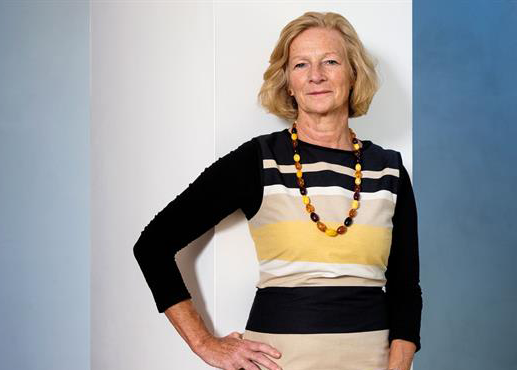Previous to co-founding Greengrass Consulting in 2016, Libby Child spent the last ten years setting up Aprais UK and developing it into a leading consultancy. Before Aprais, Libby had spent 20 years working within communication agencies in roles including Managing Director, Worldwide Account Director, European Chief Operating Officer, at Ogilvy, Young & Rubican, McCann and FutureBrand.
What is Greengrass Consulting about and what are your ambitions for the company?
Greengrass is all about the interface between people and business, aligning the behaviours of one to the objectives of the other. We believe positive overall business change happens by creating strategically driven, and aligned, behaviourial and operational changes in the workplace.
Why this ambition? Over the last ten years my consulting work has involved evaluating and then driving team-on-team performance improvement, working primarily in the fast paced marcomms sector. From this, it became clear to me that the potential of any team is highly influenced by the culture and the operating structures of the company in which it works. Teams, and the individuals within them, are very much hostages to prevailing corporate behaviours, they are prey to their “corporate culture”.
Greengrass is able to analyse a company’s current strengths and weaknesses, against key performance drivers, and against benchmarked global metrics. We use the proven, long established Denison Organisational Culture Study as our initial diagnostic, we create the frameworks which in turn create the environment to make those people, their teams and the companies more successful.
I want Greengrass to be known for its analytics, its positivity, and its ability to drive changes which get adopted and which make a difference- at every level.
You know both consulting and the marketing/advertising world very well. I suspect they are moving closer together. What characterises the two?
At a business level, the industries are both client service orientated and highly competitive, which leads to long hours, tough deadlines and demanding internal working cultures.
I can think of many marketing or advertising practitioners who could be top level consultants and vice-versa. What unites them is a restless intelligence and querying attitude.
But then interestingly, a gathering of consultants compared to an ad industry event looks and feels extraordinarily different. Agencies unsurprisingly attract more lateral and challenging personality types. Their work means they are a part of the wider world, not only the business world, they absorb trends and popular culture. This is then reflected in the look and feel of the people and their companies.
Consultancies often have the edge largely thanks to the level of information and the seniority of clients they access. Agencies bring category changing ideas, which drive sales and brand growth.
Having worked in both sectors, each approach has its merits.
What would you say makes a great consultant?
I think to be a great consultant requires a complex and rarely found mix of analytical skills and emotional intelligence. The analytical skills are required to sift through information to get to the heart of the real problem. To go beyond the given brief. The emotional intelligence is needed in order to understand the human impact of the advice you are giving, to make a connection, and so to deliver recommendations that will be accepted.
A great consultant must also bring energy and positivity, because often the hardest part is seeing a project through to conclusion, making action and change happen.
What are the key ingredients to starting your own consultancy?
Well- this is my second time, so I should be able to answer this question easily. But honestly there is no simple formula.
You really have to know the “what” and the “how” – what you want to do and how you want to do it. Don’t be a me-too, copying others already out there. Be aware of the competition but don’t obsess over them. Be passionate, be driven by a desire to do the core job, and to do it without compromise.
So, have a vision of how the consultancy should feel and what you want it to achieve, but then be prepared to be flexible. The first year can be a real eye opener!
How can the UK achieve more sustainable growth and win more business overseas?
I think at the moment we are allowing our own internal issues to cloud our ability to grow sustainably.
We have some big strengths to play to but we are not doing enough to market ourselves. We have a lot going on internally and are caught-up in our own affairs. Meanwhile the world isn’t quite so interested as we are in ourselves. What would we be saying to a client company who was inward looking?
Tell us a bit about your first impressions of the MCA?
Our first impressions are positive. I think it is an involving, participative and active industry body. We have felt very welcome, even though we are a small firm, and the SME group has played a positive part in that. The member base of the MCA, whilst correctly segmented, also comes together regularly. The Association doesn’t just play to the big firms but tackles the issues that are important to the whole industry.

